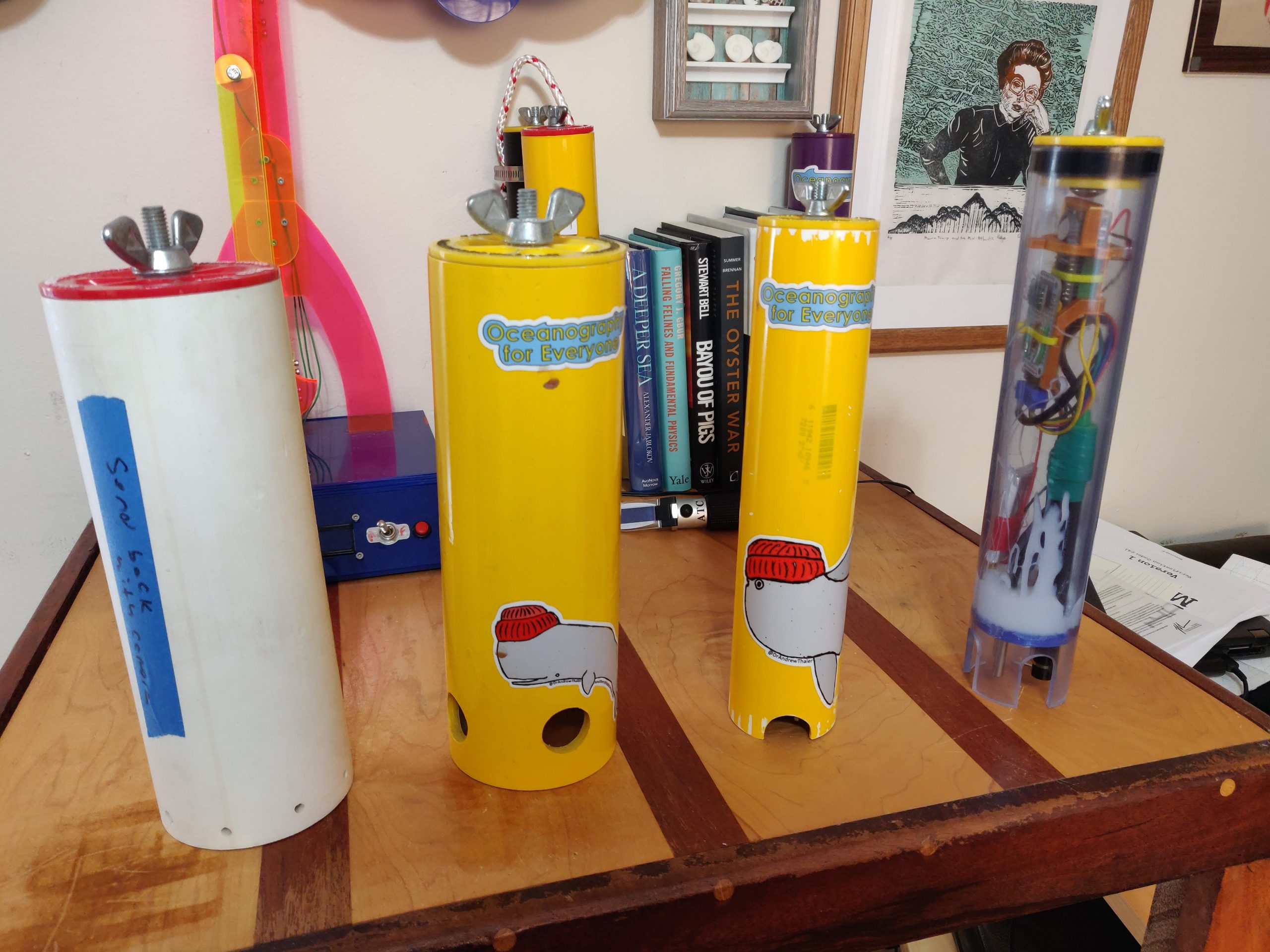 Last Friday we launched Oceanography for Everyone–The OpenCTD, a crowdfunding project to develop a low-cost, open-source CTD. This project won’t succeed without your help. To demonstrate how valuable a device like the OpenCTD is, for the next several weeks I’ll be presenting various projects that could be accomplished with access to low-cost CTD’s. First up on the docket is an array of volunteer nodes to measure the effects of hurricanes.
Last Friday we launched Oceanography for Everyone–The OpenCTD, a crowdfunding project to develop a low-cost, open-source CTD. This project won’t succeed without your help. To demonstrate how valuable a device like the OpenCTD is, for the next several weeks I’ll be presenting various projects that could be accomplished with access to low-cost CTD’s. First up on the docket is an array of volunteer nodes to measure the effects of hurricanes.
Imagine a category 2 hurricane barreling down the eastern seaboard. As the swirling air mass builds strength, it absorbs heat from the ocean. The powerful winds alter local currents, mixing layers of seawater, and depositing freshwater on the surface in the form of rain. The effects of a hurricane reach far beyond the eye of the storm and changes may take several months to return to the status quo.
Wouldn’t it be awesome if there were a group of enthusiastic (and safety minded) volunteers taking ocean measurements before* and after the hurricane passed? And not just on the regional scale like we do now, but at an extremely high resolution, charting changes in local estuaries, sounds, and dozens or hundreds (or, dare I dream, thousands) of points along the coast? Enthusiastic volunteers with access to their own local waterways and a low-cost CTD could monitor these water bodies for months following the storm, documenting changing sea conditions. Uploaded to a shared database like Marinexplore, this kind of data would provide a massive baseline for assessing hurricane impacts, anticipating recovery, and informing management of affected marine populations.
A low-cost, open-source CTD could help make this kind of large-scale monitoring project possible. With your help, we can make the OpenCTD a reality.
Please visit our Rockethub project page and consider donating (even a few dollars helps!). You can also follow us on our Google+ page–Oceanography for Everyone for project updates and additional media.
*While, of course, maintaining a conservative window of time to evacuate ahead of the storm.
